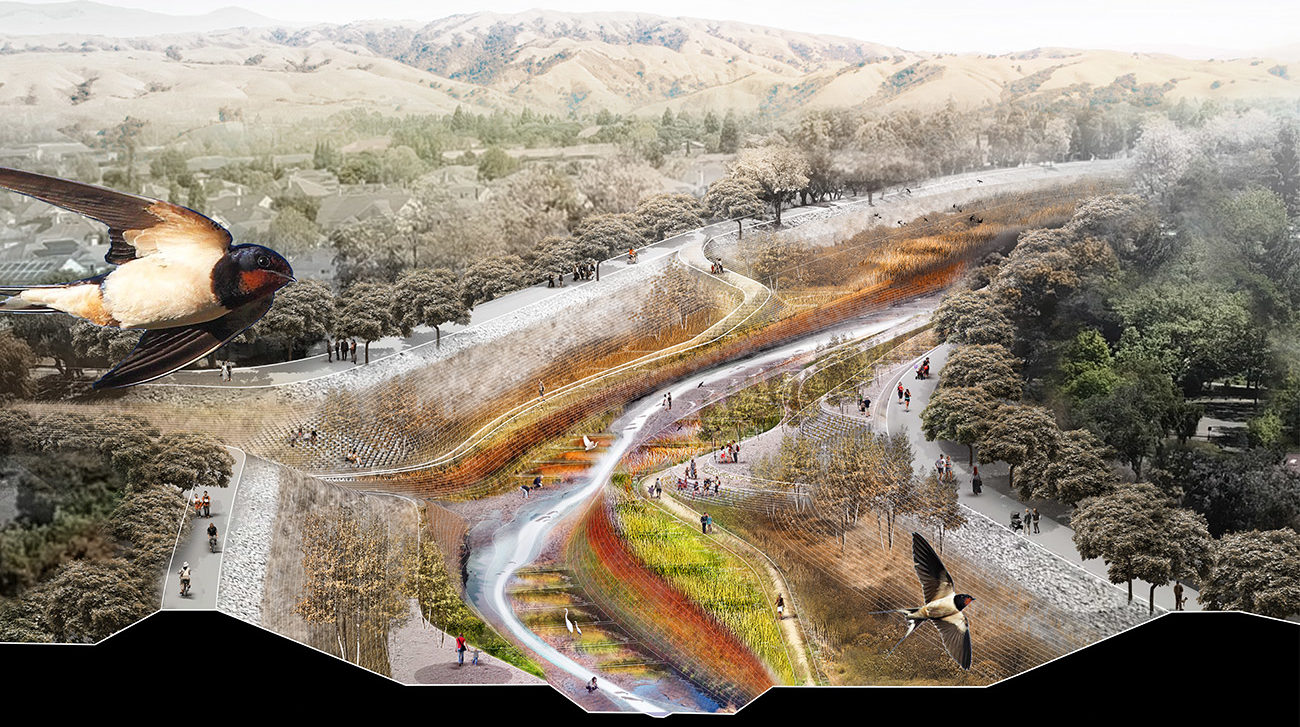Kate Orff: Unmaking the landscape
Moving forward in a time of increasing climate shocks and stressors demands that designing the social be paired with new forms of architectural expression, including the difficult and creative act of un-making.
October 22, 2019
7:00 p.m.
The climate emergency demands that the ways we build, and think about building, change radically. But how? We are in a rapidly evolving, paradoxical context of worsening scientific indicators, sweeping and contradictory policy proposals from different points on the political spectrum, and, simultaneously, increasing climate change-instigated action at the scale of cities and regions.
What, then, should designers do, and how can they do it? How do the practice, culture, and pedagogy of architecture and landscape architecture need to shift?
In this series of lectures and discussions, leading practitioners and educators describe the urgent need for change and sketch the outlines of new ways of thinking and acting as architects and landscape architects. On each evening, respondents will draw out the implications of the ideas presented and offer suggestions for implementing them at a speed and scale commensurate with the climate emergency.
What does it mean to be a landscape architect in 2019, at a moment when the globe is rapidly warming, as the market economy is hitting its zenith, and, at least in the context of the United States, civic society is unraveling? Landscape architects are trained to make shapes, to sketch plans, to detail and construct outdoor spaces, but what else do they need to be doing?
SCAPE’s practice aims to test and expand the agency of the designer. It embraces the act of convening, of advancing dialogue, and of stewardship as deeply creative acts that combine patience and vision, grit and gravitas. Design for the next century is deeply rooted in social life and designing conversations, fostering interaction, and encouraging interdependence. Moving forward, in light of increasing climate shocks and stressors, designing the social must be paired with new forms of architectural expression like un-making, un-doing, subtracting, reversing, decarbonizing, tearing out, ripping up, re-planting, softening, and connecting. This concept of un-making as a difficult and creative act will be discussed alongside examples from SCAPE’s practice.
Kate Orff is the founder SCAPE, a 50-person landscape architecture and urban design practice based in New York City and New Orleans, Louisiana. She also is the director the urban design program (MSAUD) at Columbia University’s Graduate School of Architecture, Planning and Preservation and co-director of the Center for Resilient Cities and Landscapes.
Top image: Public Sediment: Unlock Alameda Creek. Credit: SCAPE and the Public Sediment Team. Public Sediment: Unlock Alameda Creek was created by a team led by SCAPE, Gena Wirth, Principal, in collaboration with Arcadis, The Dredge Research Collaborative, TS Studio, UC Davis Department of Human Ecology and Design & Center for Watershed Sciences, and the Buoyant Ecologies Lab.
Explore
Ants of the Prairie lecture
In her 2014 Emerging Voices lecture, Joyce Hwang advocates for cross-species design.
Future Green Studio lecture
David Seiter, founder of Brooklyn landscape design firm Future Green Studio, presents his work.
Mia Lehrer lecture
Mia Lehrer is known for her commitment to environmental and community advocacy in Los Angeles and beyond.

